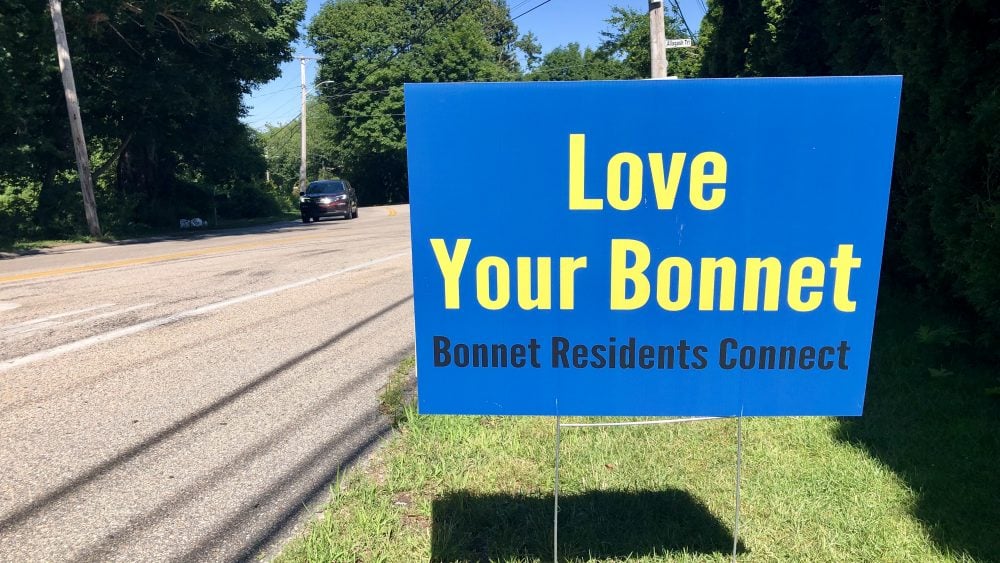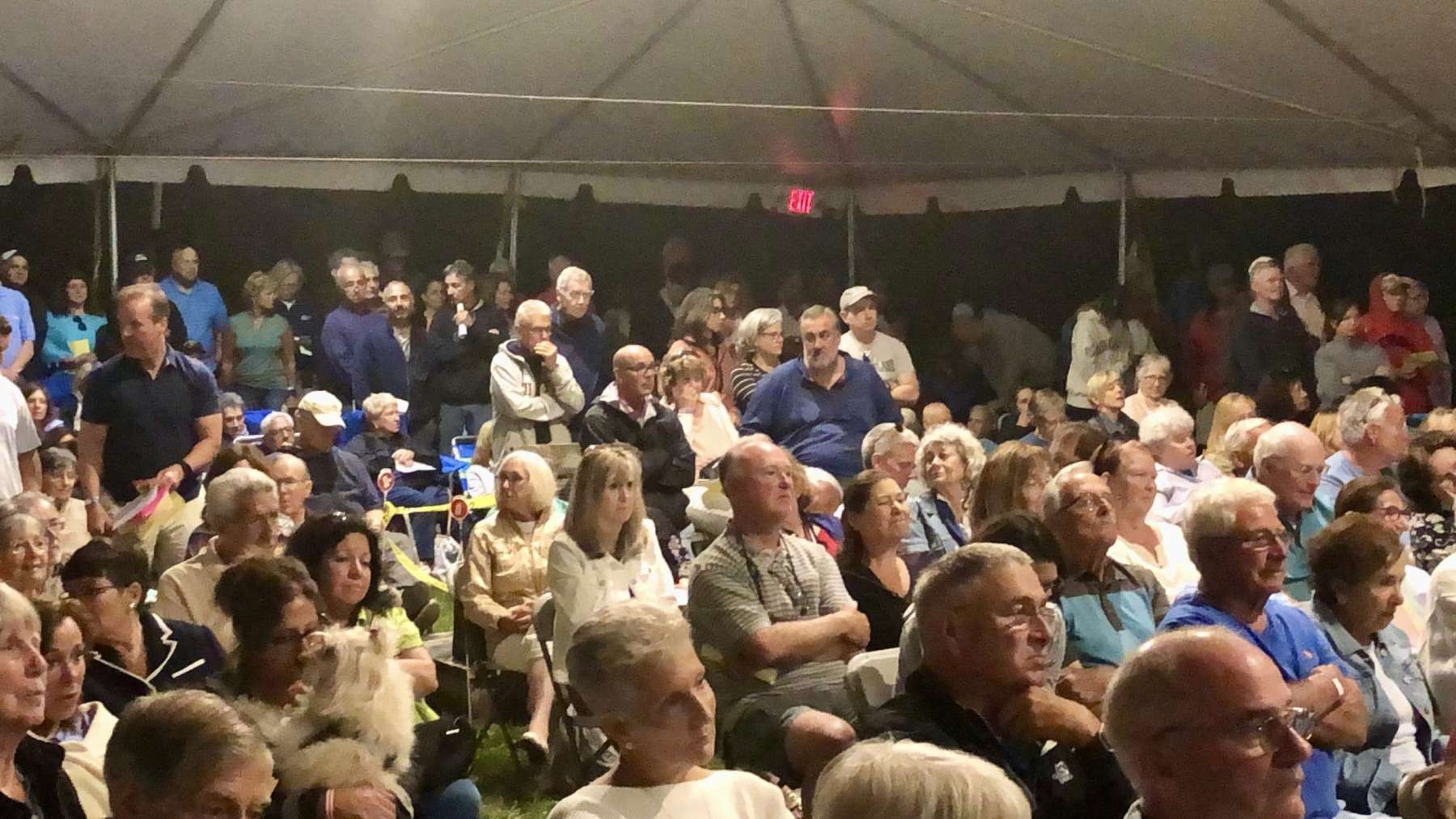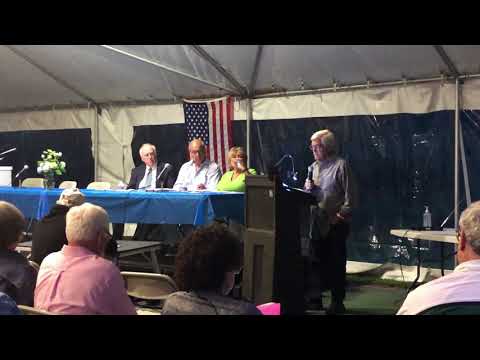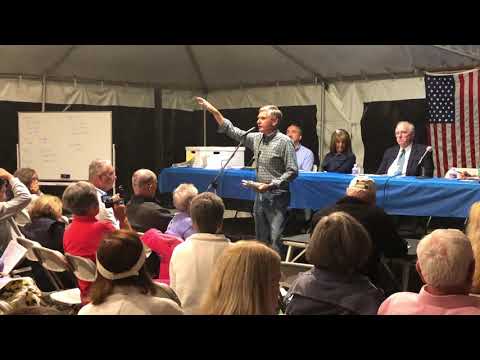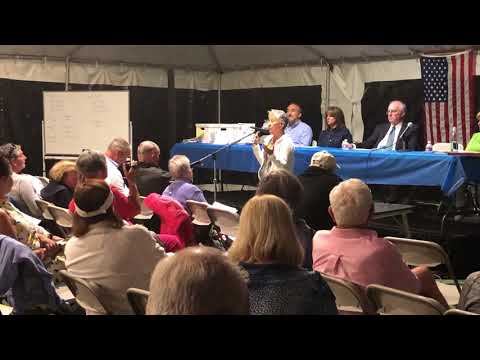Bonnet Shores Fire District election night: Tradition, Swamp Yankees and archaic voting laws
It was explained that five positions were open on the Council, two two-year terms and three three years terms. “The five candidates who get the most votes will draw straws. There will be three long straws and two short straws, okay?” said the moderator, explaining the process. Those who draw long straws get three-year terms, short straws, two. “I’m told by the nominating committee that was something that was done back in 1869 for a Senate position.”
June 25, 2021, 3:22 pm
By Steve Ahlquist
“You don’t live here, you’re not eligible to vote,” said Robert Anderson to Bonnet Shores Fire District resident Melissa Jenkins. Anderson captured 334 votes in Thursday night’s election for the Bonnet Shores Fire District Council, winning a seat.
“I actually do live here,” said Melissa Jenkins. “I’m a taxpayer and a full-time resident.”
“You’re a resident. You’re not eligible to vote here,” repeated Anderson.
“Actually, legally I am. They’re illegally denying me the right to vote,” countered Jenkins.
“That’s not true. No legal decision has been…” said Anderson.
“The ACLU is on my side…” said Jenkins.
“That’s not a legal decision,” countered Anderson, then turning his attention to another resident of Bonnet Shores, said, “She’s telling people to leave because they can’t vote,” then, turning back to Jenkins, said, “Don’t do that.”
“They don’t have a legal right to vote…” began Jenkins.
“Neither do you!” said Anderson. “You don’t know what you’re talking about! Ignorance and lies! It’s horrible. Horrible.”
“Please leave me alone,” said Jenkins as Anderson walked away.
UpriseRI was at the Bonnet Shore Fire District election, where about 700-800 people gathered under a tent, in the rain, to cast their ballot(s) for five open positions on the Fire District Council, four open positions on the Bonnet Shores Land Trust and five open positions on the nominating committee, which will choose candidates for a future election.
Under the Bonnet Shores Fire District Council’s present interpretation of the law, only people who own property within the district can vote in Fire District elections. Melissa Jenkins co-owns the house she shares with her spouse, John Mangilli, but her name is not on the deed. Hence, she was denied a ballot in 2019, and last night.

“As in 2019, I was not allowed to vote as I am not listed on the property deed for the home that my husband and I jointly own,” wrote Jenkins to Uprise RI Friday morning, along with a photo of the final vote results from Thursday night’s election. “I am a full time resident registered to vote at this address. Many other neighbors are similarly disenfranchised, but honestly, it doesn’t matter. We are ridiculously outnumbered by the commercial property shareholders, who have been told that they can vote. This is not legal and it’s certainly not democratic.”
Jenkins is one of the Founders of Love Your Bonnet, a group of residents who want to change the way elections are held in the Fire District. Currently, property owners are allowed to vote, even if the property they own is a small cabana, essentially a changing closet at the Bonnet Shores Beach Club. Further, such owners are allowed to cast proxy votes.
How this panned out during Thursday’s election is that out of the 700-800 people who were at the election in person, 2754 votes were cast for the open council positions. Proxy votes seemingly outnumbered in person votes over 2 to 1.

The ACLU of Rhode Island is suing Bonnet Shores on behalf of Jenkins and other disenfranchised Bonnet Shores residents.
“Voting rights are extended to all property owners, not just residents,” wrote ACLU attorneys in the lawsuit. “Thus, commercial interests such as the Bonnet Shores Beach Club can exercise its vote through an authorized representative, while Plaintiff Melissa Jenkins, an actual person, is unable to cast a ballot. Additionally, the 4,948 joint owners of the 930 ‘cabanas’ and ‘bathhouses’ of the Bonnet Shores Beach Club [BSFD] each have a vote, regardless of how many times — if any — they visit BSFD during the year. These owners may be individuals, realty companies, limited liability companies, family trusts, or any other “person” as broadly defined in law. Thus, many for-profit commercial enterprises have a greater say in who is setting local property taxes and traffic rules than those who live in BSFD and are subject to those ordinances. These ‘cabanas’ are not residences with many not being large enough to meet minimum housing requirements. In contrast, Plaintiff Jenkins, a year-round resident, is denied the right to vote. And the exercise of the vote by the cabana owners who are not otherwise residents of BSFD mathematically dilutes and weakens the impact of the vote cast by the plaintiff voting-eligible residents of BSFD.”
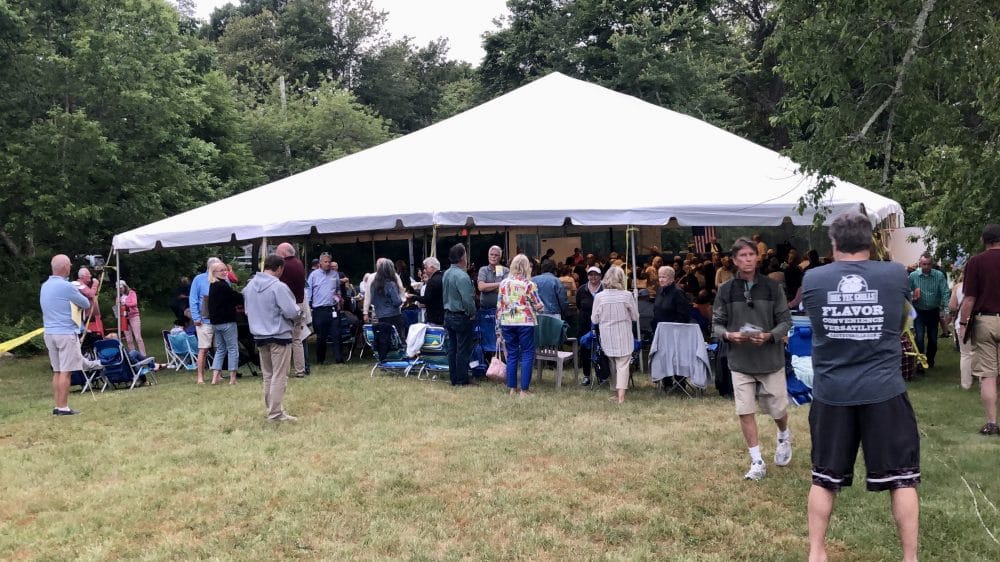
The power of a diluted vote was easy to see under the election tent Thursday night.
The process of conducting the vote was laborious. First, those arriving were made to stand in long lines. One woman told me it took her ninety minutes to get through the line, receive a ballot and receive a wristband that would guarantee her right to speak at the meeting and cast her ballot. Some in line had to not only validate their eligibility vote under the Bonnet Shore rules, but also put in a claim for multiple absentee ballots. As darkness fell the meeting, delayed twice because of the long lines, got underway.

It was explained that five positions were open on the Council, two two-year terms and three three years terms. “The five candidates who get the most votes will draw straws. There will be three long straws and two short straws, okay?” said the moderator, explaining the process. Those who draw long straws get three-year terms, short straws, two. “I’m told by the nominating committee that was something that was done back in 1869 for a Senate position.”
People chuckled knowingly at this invocation of tradition. Tradition is important in Bonnet Shores, and tradition is the way in which “individuals, realty companies, limited liability companies, family trusts, or any other ‘person[s]’ as broadly defined in law” perpetuate a system that favors their propertied interests over the rights of citizens to fair elections.
Candidates for the open positions frequently prefaced their two-minute campaign speeches by mentioning how long they’ve lived in Bonnet Shores, emphasizing how deeply they are embedded in the community and how strongly they value the traditions of the Fire District and the status quo. A few of the comments made by candidates and those endorsing candidates:
“She’s been a member of the community for over 40 years”
“He has been a Bonnet homeowner since 1998”
“I’ve lived in Bonnet Shores since June of 1973”
Candidates danced around the contentious voting issue, talking about protecting community ties, not disrupting them, and brought messages of unity, despite differences. Steve Danuszar, a council candidate, went so far as to disavow the wording of a flyer issued in favor of himself and other Bonnet Shores candidates endorsed by the status quo. The flyer presented a list of endorsed candidates, with a note atop that read,
NOTE: Love Your Bonnet’ & ‘Concerned Citizen’ are independent groups of residents. They are NOT affiliated with the Bonnet Shores Fire District.“
“The flyer says they are not affiliated with Bonnet Shores. Obviously that’s wrong, I just want to be clear,” said Danuszar, to some applause. “These other groups that are mentioned on this thing, have different views from who we’re asking you to vote for on this…”

Candidate Robert Anderson, who engaged with Melissa Jenkins at the top of this piece, told the crowd that they could tell from his accent that he was a native son,” a “Swamp Yankee.” Traditionally, “Yankee” is understood in terms of being a hard hard-working, pull yourself up by your bootstraps type of person. The uniquely Rhode Island term “Swamp Yankee” invokes ideas of a person less citified than a traditional Yankee, the northern United States version of a southern “good ol’ boy.” By using this term Anderson invoked the values od nativism and tradition with the values expressed in archaic voting laws that link the right to vote with property ownership, a concept as old, sexist and racist as the United States itself.
After the candidates gave their speeches, voting began. This consisted of depositing ballots in the boxes at the front of the room. All the ballots were counted that night.
What’s the future? It’s unknown how long it will take for the ACLU lawsuit to run its course. It’s unknown if the results of this election will be reversed by the courts if they rule against the Fire District.
“Hundreds of people who do not live in Bonnet showed up at the annual meeting and voted for the people that the private commercial beach club told them to vote for,” wrote Melissa Jenkins the morning after the election. “That’s what happened. Bonnet residents rallied, but there’s only so much you can do when your own council (all shareholders in the beach club) is seeding the nominations and running the meeting, allowing nonresidents to vote and carry in proxies for the many people on their beach closet deeds. We knew this would happen. There are 800 homes compared to over 4000 commercially deeded beach closet owners.
“This unconstitutional election should not have been held and should be overturned.”

